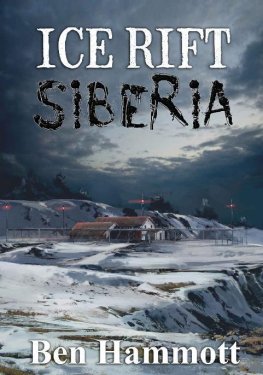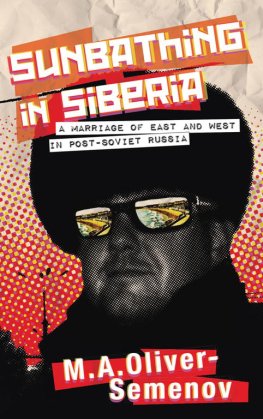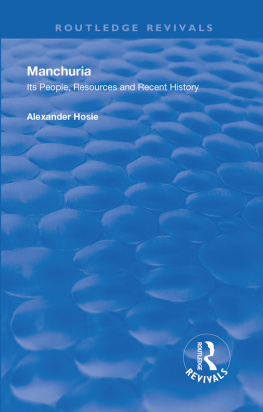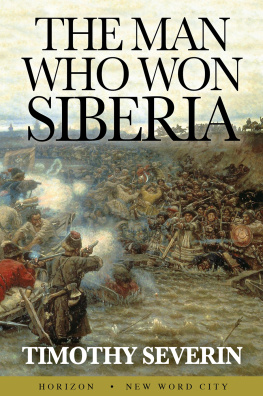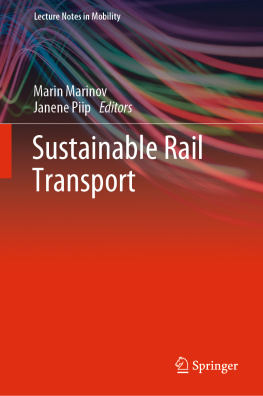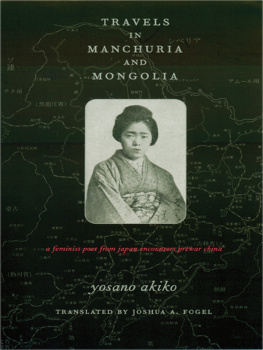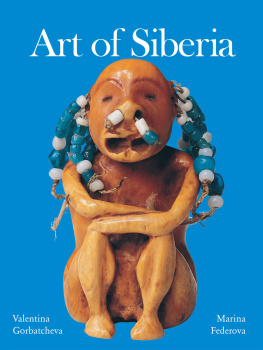EASTWARD HO!
I left Charing Cross on the 15th October, 1903, by the 10 a.m. boat-train for Dover. As we glided on I mentally said good-bye to familiar scenes, for I was outward bound, to put in another five years service under the dragon flag.
At Dover we went aboard the Belgian rapide Ville de Douvres and in ten minutes were streaming at twenty miles an hour through the shipping on our way across Channel.
It was a lovely day with fair wind and smooth sea, and had only the vessels bows been pointed in the opposite direction, I should have been perfectly happy, but they were not, so I had to make the best of things, which consisted in watching over the stern Old Englands chalk cliffs, gleaming white in the brilliant sunshine, slowly sink and disappear into the heaving main....... Good-bye. Eastward ho!
The Belgian coast was sighted at about 3 p.m., and shortly after 4 we landed at Ostende, and I was soon installed in a first-class coup of the weekly Nord-Express, which was to carry me without change as far as Warsaw.
This train de luxe, consisting of an engine and five or six cars, was as replete with comfort and luxury as it was possible to compress within so limited a space.
That night we passed through Belgium by way of Brussels, and at 7.30 next morning, the 16th October, arrived at Berlin, but only stopped for half-an-hour, when we were again en route.
The day was fine and the country pretty, without being beautiful. In places it was well wooded with firs and silver birches. For many miles I noticed sorrel growing alongside the line almost as thickly as grass.
Shortly before arriving at the Russian frontier that afternoon, I saw many truck-loads of parsnips, and heard a train-load of geese, which were coming from the merry green fields of Poland to make pt de foie gras for the Germans.
The frontier town of Alexandrowo was reached at 3 oclock, and there we passed from German to Russian control. At the German end of the long platform officials and porters were wearing the German uniform. At the Russian end of the platform, all porters were clad in long, white cotton smocks with leather girdles, while officials wore the uniform of the Czar. As the two nationalities were here contrasted, I think the Russians showed to greater advantage, being generally taller and having a more natural bearing than the over-drilled Teuton.
Our luggage was examined by the Customs officers, and our passports taken away, visd, and returned, before the train was allowed to proceed.
It was getting dark as we steamed into Russia, so that not much of the country could be seen, but as far as I could make out, it looked flat and gloomy enough.
We reached Warsaw at about 8 oclock, and as the train stopped here, it being a terminus, I drove to the Hotel Bristol.
The general impression I had received while on this rapid journey across half of Europe in little more than 24 hours, was that in Belgium things looked slip-shod, in Germany organized, and in Russia potential.
The hotel I found to be first-class and up-to-date in every way, while prices were moderate (six roubles a day) and the cuisine excellent.
The dining room was a perfect blaze, being illuminated by more than 1,000 electric lights, let into the walls and screened by round, opaque glasses, so that the effect was something like that of so many bulls-eye lanterns.
As soon as I had been shown to my room, my passport was again demanded by a police agent, and again taken off to be visd. I subsequently learnt that everyone in Russianot only travellers but also all Russiansmust have a passport, without which it is impossible to get even a nights lodging, so that the entire population comes directly and constantly under the eye of the police. This must at times be rather galling, but on the other hand, it is a great protection, especially to strangers.
17th October.Warsaw is an interesting town for many reasons, also, it is well laid out, having several large boulevards flanked with grass and trees, though the back streets are dirty, and badly paved with large, uneven blocks of stone.
Many beautiful churches raise their lofty spires and oriental domes, painted green or gilded with gold and surmounted by crosses, for Russians are of the Greek faith. The principal streets were crowded with fine soldiers in gay uniforms, the slums were packed with repulsive looking Jews, who, in long black coats and little peaked caps, sneaked about as though in constant dread of persecution, their hooked noses, pale faces and black beards giving them that furtive and crafty appearance for which the Polish Jew is so well known. Objects of pity, their history is written on their faces.
The horses, though fine-drawn, looked strong, well-bred and good goers.
Cigars were very dearabout eighteen pence for a medium oneand each separate cigar was sold in a kind of glass or gelatine air-tight tube.
18th October.Left Warsaw at 9.30 a.m., and the train was so crowded that although holding a first-class ticket, I was obliged to travel in a second-class sleeping-car, in company with a Pole, a Russian, and a German and his little three-year-old daughter, to say nothing of piles of luggage. Passed through fine open country, quite flat, with woods of fir, pine and silver birch at intervals, marshy plains and cultivated ground (like Fens) alternating. Flocks of sheep and geese, herds of cattle and horses. Very few birds of any kindonly saw some crows and linnets.
Roads were wretched, being mere tracks a foot deep in mud, and looked as though they had never been repaired, or even made.
Houses built low with no upper storey, walls of wooden beams and roofs of thatch. Men mostly clad in sheep skins, and women in red dresses with a red cloth over the head, bare legs and sandals. Winter wheat well grown.
19th October.Passed a good night, despite five in the compartment. This morning much colder, and at 10 oclock saw snow, at first lying in drifts, but gradually increasing as the day wore on until everything was covered, while ponds were frozen.
Hardly any good houses. Peasants with hair four or five inches long and wearing sheep skin coats and knee-boots, came to stations to look at the train. The women had shawls over their heads, and squelched through the mud and slush with bare feet. All looked cold and dejected, while the landscape was most depressing.



